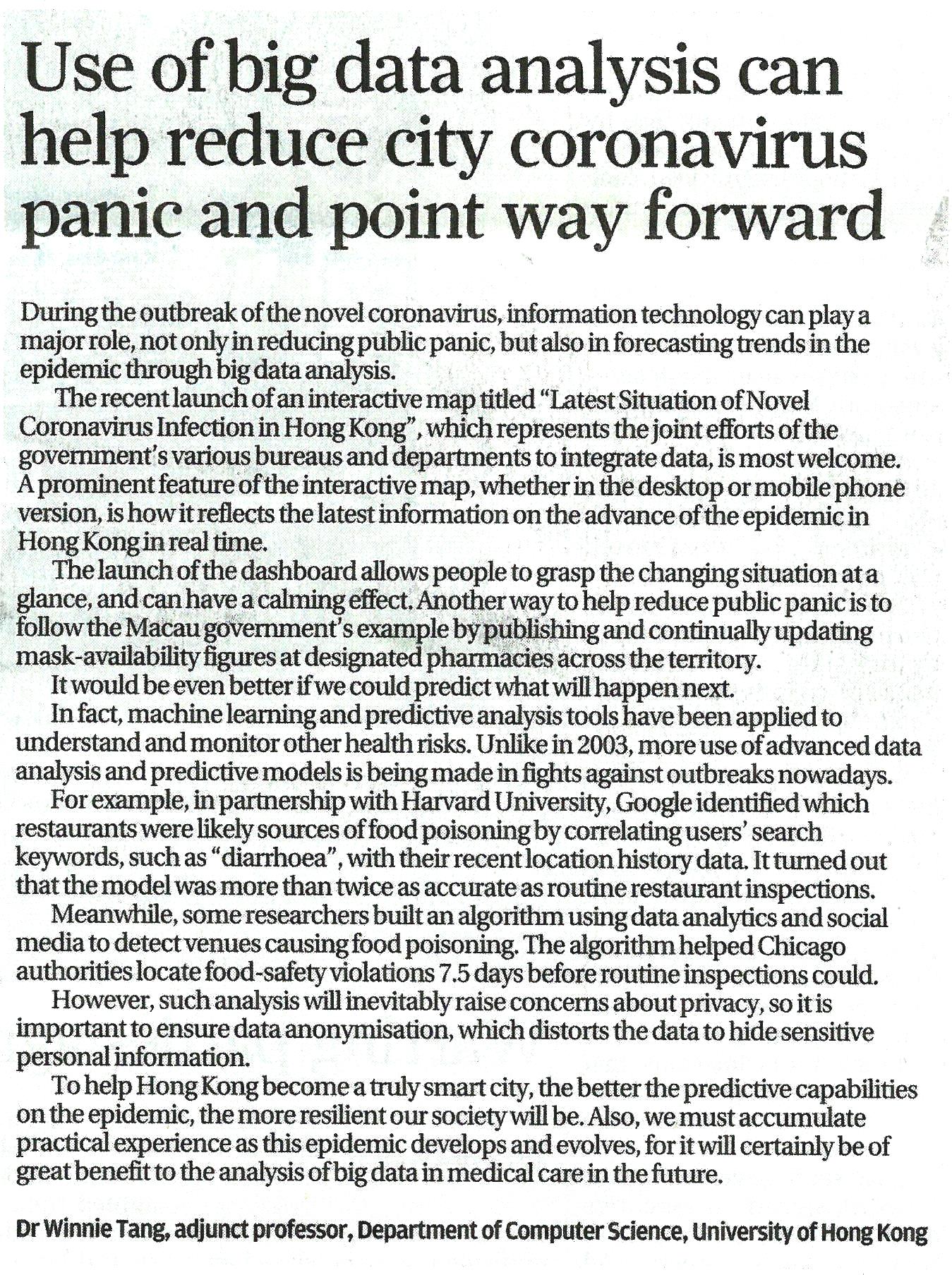網上版請按此

Use of big data analysis can help reduce city coronavirus panic and point way forward
During the outbreak of the novel coronavirus, information technology can play a major role not only in reducing public panic but also in forecasting trends in the epidemic through big data analysis.
The recent launch of an interactive map titled "Latest Situation of Novel Coronavirus Infection in Hong Kong", which represents the joint efforts of the government's various bureaus and departments to integrate data, is most welcome. A prominent feature of the interactive map, whether in the desktop or mobile phone version, is how it reflects the latest information on the advance of the epidemic in Hong Kong in real time.
The launch of the dashboard allows people to grasp the changing situation at a glance and can have a calming effect. Another way to help reduce public panic is to follow the Macau government's example and publish and continually update mask availability figures at designated pharmacies across the territory.
It would be even better if we could predict what will happen next.
In fact, machine learning and predictive analysis tools have been applied to understand and monitor other health risks. Unlike in 2003, more use of advanced data analysis and predictive models is being made in fights against outbreaks nowadays.
For example, in partnership with Harvard University, Google identified which restaurants were likely sources of food poisoning by correlating users' search keywords, such as "diarrhoea", with their recent location history data. It turned out that the model was more than twice as accurate as routine restaurant inspections.
Meanwhile, some researchers built an algorithm using data analytics and social media to detect venues causing food poisoning. The algorithm eventually helped the Chicago authorities locate food safety violations 7.5 days before routine inspections could.
However, such analysis will inevitably raise concerns about privacy, so it is important to ensure data anonymisation, which distorts the data to hide sensitive personal information.
To help Hong Kong become a truly smart city, the better the predictive capability on the epidemic, the more resilient our society will be. Also, we must accumulate practical experience as this epidemic develops and evolves, for it will certainly be of great benefit to the analysis of big data in medical care in the future.
Dr. Winnie Tang
Adjunct Professor, Department of Computer Science, Faculty of Engineering and Faculty of Architecture, The University of Hong Kong